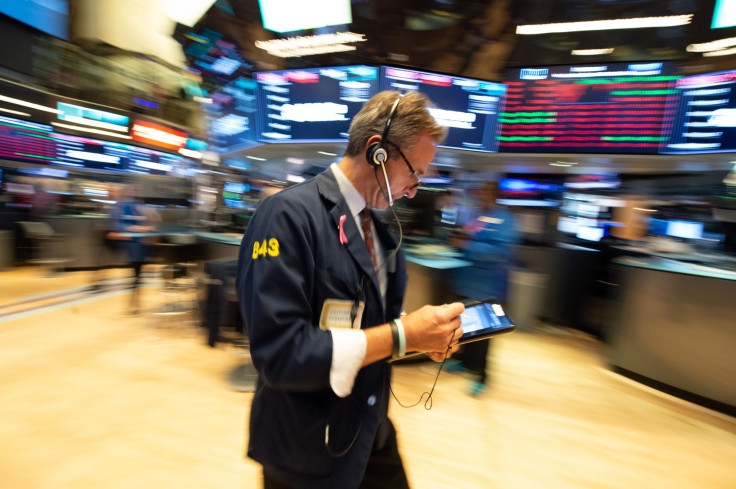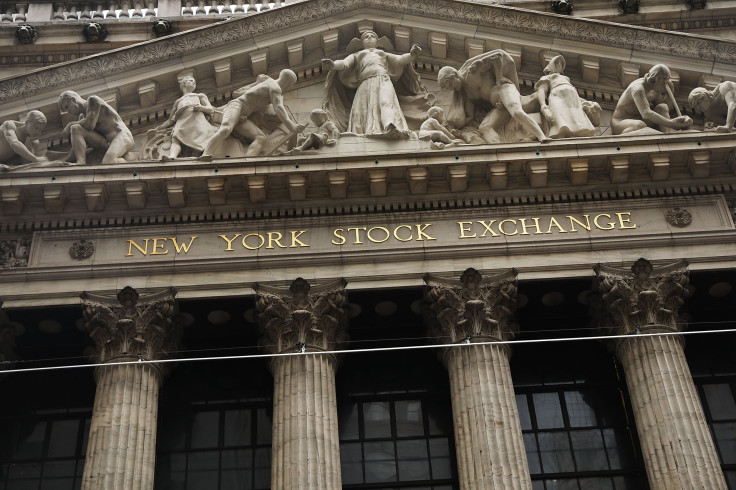US Stocks Are Undervalued, May Rally By Year End: Hugh Johnson

“It doesn’t take much for edgy investors who have made big profits to get off the fence and sell.”
Hugh Johnson, chief investment officer at Hugh Johnson Advisors, said the recent markets sell-off is a correction, driven by investors who think this “one heck of a long recovery” won’t last and have taken an overly pessimistic view of a coming slowdown. He expects the S&P to close this year higher than current levels as the stocks have now become “undervalued.”
In an interview with International Business Times, Johnson said a strong U.S. economy with leading indicators rising for 28 successive months, the 2-10’s yield curve, and consensus forecasts for 2019 and 2020 -- all suggest that the market sell-off cannot be attributed to a recession.
In September, Johnson had explained how the 2-10’s yield curve does not suggest a recession for the next 12 months.
“The weight of the evidence is telling forecasters to not get in the recession camp,” said Johnson. He does not support the view that this is the end of a cycle and that we're seeing the start of a bear market that's going to be accompanied by a recession. “I don't think the case is very strong at all.”
Johnson said it doesn't take much to turn edgy investors into sellers. “First, this has been the longest bull market in history and investors know it. Secondly, they've made a lot of money in the last 10 years and investors know that. You put those two things together and they're just simply intuitively edgy,” he said.
“They're worried because they saw the numbers out of China and they're worried because they saw the forecasts from the IMF (International Monetary Fund) -- so they think the economy is doing well but nobody's really comfortable. Because this has been one heck of a long recovery and trees don't grow to the sky,” he said.
In October, the IMF reduced its global economic growth forecasts for 2018 and 2019 to 3.7 percent from its July forecast of 3.9 percent for both years.
Johnson thinks that the sell-off is triggered by fears that the global economy will do very poorly, but said the markets seem to be overstating the problem.
“There's no question that things are going to turn out a little bit less rosy. We're really pricing in something much worse than is in the cards.”
Johnson does not see the current sell-off to continue into the end of 2018. “The stock market has declined to a level that's undervalued -- it’s 6 percent underneath or below the level it should average in the current quarter and 10.6 percent below the level that should average in the fourth quarter of 2019.” He called it a ‘silver lining’ that the price decline has made the S&P 500 undervalued from being overvalued.
Johnson compared the sell-off to the market correction early this year when prices declined 11.8 percent. The S&P 500 has fallen about 5.4 percent so far in October, but is up 3.5 percent so far in 2018 despite the sell-off.
“This one looks like it's going to end up in the history books being the same thing. It's not as severe yet as that was, but it's taking its toll you know emotionally for sure.”
“They (sell-offs) are very painful and the one thing they do is they raise real questions -- they really test us if you are bull or you are positive -- this decline is testing that conclusion, that view for sure,” he added.

BUT A DISMAL 2019 AWAITS
Johnson thinks the chances of a recession are low at current interest rates levels, but he also thinks the picture could change in the second half of 2019.
“When interest rates, both short and long-term, of the federal funds rate as well as the yield on a 10-year Treasury will be higher, and the growth rate of earnings will be lower, then I think you are going to be able to build the case that we're going to have the probability of a recession will start to flirt,” he said.
Johnson said a 3-3.5 percent for the Fed funds rate and for 10-year Treasury could really weigh on the economy, but does not forecast these rates until the second half of 2019. “Given those legitimate concerns about interest rate levels and the dollar, I still don't think that it will tip us into a recession until we get to the second half of 2019 at the earliest. The economy remains too strong right now,” he said.
“Things are going to slow down and then of course interest rates will be higher so all of that will conspire for the economy to slow down from a pretty strong pace in 2018 - 2.9 percent down toward 2.5 maybe lower in 2019 -- but I don't think we're talking about recession or negative growth not quite yet.”
DEMOCRATS WINNING MIDTERMS CAN WEIGH ON MARKETS
Johnson thinks that a combination of Federal Reserve raising interest rates and a shift towards restraint in fiscal policy in the form of a tax rollback could serve as bad news for the economy and weigh on the minds of “sophisticated investors.”
“With the midterm election coming up, there is a chance that the House of Representatives of the Congress could be shifted from being controlled by Republicans to being controlled by Democrats. It's not a good chance but there's some chance. Don't be surprised if you see the Congress try to roll back some of the tax cuts of the Trump administration,” Johnson said.
He said investors could be reminded of what happened in 1982 with the Reagan tax cuts which were rolled back, and they could be reminded of 1938 when Roosevelt rolled back, and the deficit got large and he increased taxes as a result.
“Neither time was particularly good news short-term for the markets. So the combination of monetary and fiscal restraint could be bad news for the stock market,” Johnson said.
© Copyright IBTimes 2024. All rights reserved.




















